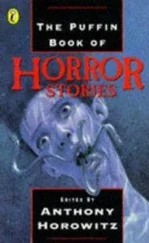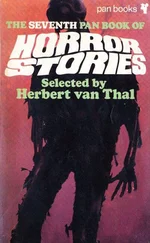Aunt Libby’s Grave
MELANIE TEM
Libby glided from the sitting-room to the bedroom. She sat in both, slept in both and on the dusty floor of the roughly pentagonal central hall off which they and three other rooms opened like petals. No matter how unclear the functions of things were, it was important to have names for them.
She crept from the bedroom to the study. Papa brought her books and she did indeed study them, her mind’s alchemy transforming the information into her mind’s own thing.
She sped from the study to the nursery, which was empty, which had in it pale lovely light and motes of dust like old lace. It was not really a nursery; she only called it that to gather in one place her desolation and resolve. Another room might gather tedium, or joy.
Pulling her pink sweater more tightly around her, she sang so they would hear her — in the rest of the house, moving behind walls; in the wide world, drifting from window to window; in days gone by and days to come.
Aunt Maureen was poised to tell a story — the story which Cecelia guessed now, too late, was the reason they’d come to the cemetery. Cecelia didn’t want to hear it. She had a strong sense of danger, a physical feeling of dread.
But she liked her Aunt Maureen. She’d always liked her, and now that her mother had died, taking with her any hope that they could be close or that Cecelia would ever be brave enough to ask her why they weren’t, her desire for Aunt Maureen to like her had intensified into a childish yearning.
That was why she’d taken the long train ride from Denver to Detroit to visit — hoping for guidance, maybe; hoping for approval, or just for contact. That was why she’d not had to feign interest in the news of Aunt Maureen and Uncle Everett’s grown children, her cousins whom she knew little and liked less, although it had been necessary to conceal her jealousy as their mother talked fondly, worriedly, proudly, knowingly about them. It was why she’d found herself worrying at odd moments about whether she was carrying on a conversation sufficiently polite, about how the things she told of her life were sounding to Aunt Maureen, about whether there was cat hair on her clothes since assuredly no fur-bearing animal had ever set foot in Aunt Maureen’s house.
Wanting to please Aunt Maureen was also the main, though perhaps not the only, reason she’d acquiesced in coming here and standing on this hill in this bright cold autumn afternoon and looking at grave markers neatly embedded in the family plot. Dark grey metal rectangles with raised inscriptions she assumed to be bronze, they were all partially obscured now by leaves skittering in a breeze she couldn’t yet feel but would soon enough. Aunt Maureen pointed out those for Cecelia’s grandparents, Harry Harkness, whom she remembered without much emotion one way or another, and Martha Harkness, who had died young in childbirth. Those for Elizabeth and Frances Harkness were next in line, separated from the rows for the next family by a blank space which Cecelia found a trifle unsettling.
She couldn’t refuse to listen to the story Aunt Maureen had to tell her, nor even let her attention wander for fear her aunt would notice and disapprove. But apprehension made her pulse skitter like the leaves.
‘When your Aunt Libby died,’ Aunt Maureen declared, ‘I was the only one at her funeral. I stood right here, where we’re standing now, and I watched the funeral procession come up that hill, and there was just the hearse and the undertaker, and I was the only mourner at the graveside.’
‘Why didn’t my mother come? Aunt Libby was her sister, too.’
‘Dad said Helen and Libby were close when they were girls, but once they were grown they didn’t get along.’ Aunt Maureen shook her head briskly, as though dismissing the squabbles of her two much-older sisters. But something about the set of her shoulders or the cast of her glance piqued Cecelia’s attention.
Maureen was a tiny woman, even shorter than Cecelia’s mother had been, considerably thinner, and equally formidable. Cecelia thought she remembered Aunt Libby, the eldest of the Harkness girls, being taller and lean, gaunt to Maureen’s wiriness and the stocky sturdiness of her mother Helen. But Aunt Libby had died when Cecelia was no more than three years old, so she hardly remembered her, and she’d discovered that her images of her mother shifted from time to time. She thought about her a good deal and, of course, remembered her vividly, but what she remembered changed. It wasn’t as if she’d forgotten what her mother had looked like, but as if she’d never exactly known.
‘It was a chilly fall day like this,’ Aunt Maureen continued, and as though to illustrate pulled her navy blue sweater tight around her and crossed her arms over it.
Cecelia caught her breath. Her mother used to make a habitual gesture like that. It had been a bright pink sweater with embroidery on the collar, and she’d pull it snug around her just like that and cross her arms, tucking her hands in. The memory, which had been buried until this moment and had the feel of very early childhood, pierced and hummed like an arrow that had hit its mark, as though it meant something.
The air wasn’t moving, but in it was the anticipation of chill golden wind and sleet. The grey-gold sun through layers of hardwood leaves, compressed this late in a Michigan October, had a metallic sheen, a wet-metal taste. Cecelia fumbled for a comment so Aunt Maureen wouldn’t think she wasn’t interested. In truth, she wasn’t particularly interested in Aunt Libby’s death and funeral, but she didn’t want Aunt Maureen to stop talking to her.
‘I stood up here on this very hill and I watched Libby’s funeral come towards me—’ Cecelia looked where she was pointing, at the winding dirt road below them and beyond. There, in fact, she caught sight of an oncoming funeral procession, a boxy black hearse, one other dark car nearly as tall at the hump as it was long, and — oddly, she thought, though she couldn’t quite have said why it was odd — several pedestrians.
The road was apparently much further below them than she’d realized, for the figures stayed tiny, movements blurred by distance and perspective. She blinked, glanced at her aunt beside her, looked back. The sad little parade of miniatures was no closer, although it was still in forward motion.
Uncle Clyde’s flesh was mostly pale pink, darker pink in some places Libby could not think about, and smooth, hairless. If he’d been hirsute, darker-skinned, or covered with warts, she’d have found his body no more nor less revolting.
When she was little and Uncle Clyde would come to get her, she’d sometimes open his shirt and feel around for his nipples, like little stones in the ocean of his soft smooth flesh. Then he’d whisper to her, or say out loud if he was sure they were alone, ‘You like this, too, don’t you, sweetie? You like your Uncle Clyde.’
Libby did like how his nipples felt under her fingertips. They gave her something to fasten her thoughts on to. Sometimes, too, she’d imagine that she could slit him open by tracing a line from one of those hard pinkish-brown dots to the other and his pink heart would tumble out into her hand. That never happened.
All the women in the family knew about Uncle Clyde. As girls grew up, they learned what to say about him. ‘Oh, that’s just Clyde,’ Grandma said nervously the single time Libby — thirteen years old, scrubbing clothes on the washboard in the big black tub — told her about the kisses he stole from her in the pantry, which was not the worst she had to tell. Her little sister Helen was peeling potatoes on the back porch, out of sight but not out of earshot, and Maureen, crawling, was under everybody’s feet, with Mama eight months dead.
Читать дальше












